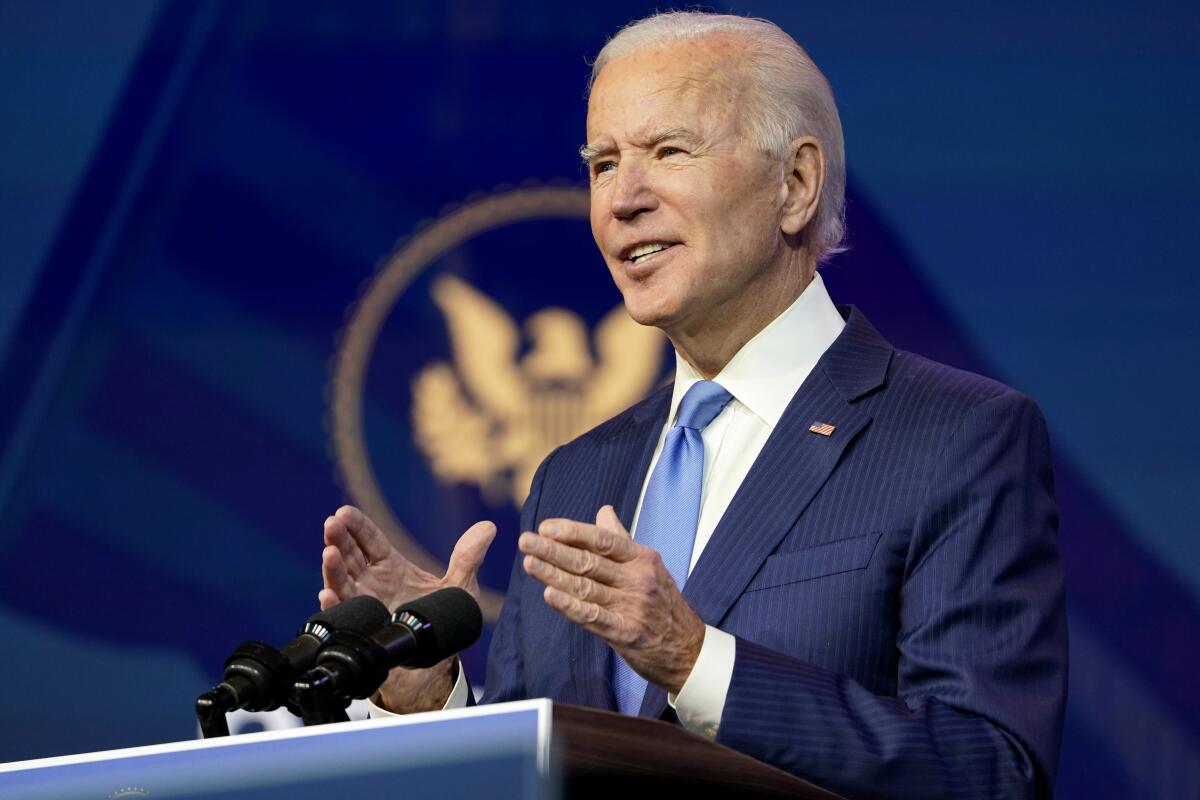Letters to the Editor: Biden’s Defense pick is a problem, and it’s not because he was a general

- Share via
To the editor: I appreciate that the controversy surrounding President-elect Joe Biden’s nomination of retired Army Gen. Lloyd Austin to be secretary of Defense needs to be addressed due to the nomination’s challenge to the statutory seven-year rule.
While the goal of protecting civilian control of the military is legitimate, what may be far more critical in this era is the separation of the Defense secretary from the “industrial” side of what President Dwight D. Eisenhower called the “military industrial complex.”
U.S. history does not provide evidence in support of the fear that military officers are either jingoistic or junta-prone. Much more evidence exists that corporate financial interests promote military enhancements and war when it is in their interests.
Perhaps the more pressing concern should be about Austin’s work since retiring in 2016. He serves on the boards of Raytheon Co., a major defense contractor, and steel producer Nucor Corp., two beneficiaries of military expenditures.
Austin would not be the first Defense secretary to be associated with companies that benefit from military spending. This is perhaps where there is a more serious concern.
Gayle Binion, Los Angeles
The writer is a professor emerita of political science at UC Santa Barbara.
..
To the editor: Biden will enter the White House with a long foreign policy to-do list. Most of these issues don’t have ready-made solutions. (“On foreign policy, it’s not enough for Biden to be the anti-Trump,” editorial, Dec. 10)
But Biden can nonetheless effectively manage them with a large dose of pragmatism, a clear set of realistic priorities, and a willingness to distinguish between what is necessary for the U.S. security interest and what is at best a distraction.
In the Middle East specifically, Biden must use restraint. First and foremost, this will require his administration to understand just how limited U.S. security interests are in this region. Backing Saudi Arabia to the hilt, basing our entire policy on pressuring Iran to capitulate, and picking winners and losers in the region’s myriad conflicts will lead to over-investment and needless conflict.
If Biden is truly interested in getting U.S. troops out of the Middle East, he will need to downgrade the region’s importance and see this part of the world for what it really is — one of marginal significance to America’s security and prosperity.
Daniel R. DePetris, New Rochelle, N.Y.
The writer is a fellow at Defense Priorities, a foreign policy think tank in Washington.
More to Read
A cure for the common opinion
Get thought-provoking perspectives with our weekly newsletter.
You may occasionally receive promotional content from the Los Angeles Times.









